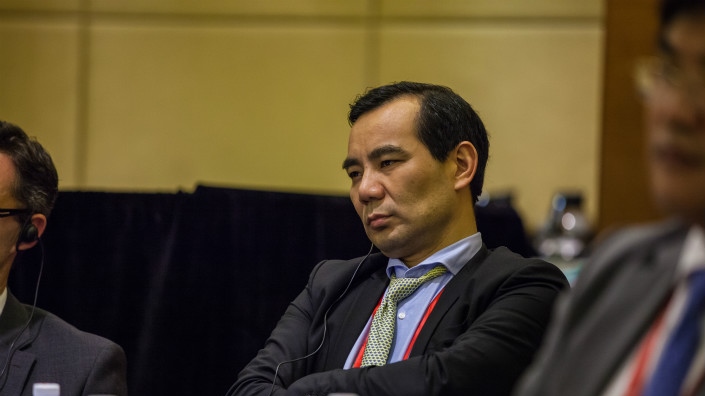Former Anbang chairman jailed
May 10, 2018 | Expert Insights

Wu Xiaohui, the former chairman of Anbang Insurance, has been jailed for 18 years for corruption and fraud. Wu was known for aggressive international acquisitions and the use of leverage.
In February, the Beijing-based Anbang Insurance Group was seized by the China Insurance Regulatory Commission.
Background
The Anbang Insurance Group was established in 2004 as an automobile and property insurance agency. In 2010, the company, located in Beijing, ventured into life insurance as well. It is ranked 139 on the Global Fortune 500 list and holds over $310 billion in assets. Anbang is not publicly traded, and is known for its aggressive procurement of international assets.
In 2015, the company acquired the Waldorf-Astoria hotel in New York, the Dutch insurance agency Vivat, and a 57% stake in South Korean Tongyang Life Insurance. The following year, the corporation invested billions of dollars in properties across North America. Last year, it was reported that Anbang Insurance was in talks for a real estate deal with US President Donald Trump’s son-in-law, Jared Kushner. According to CNN, the agency has spent over $20 billion on deals since 2014.
In June 2017, it was reported that the founder of Anbang, Wu Xiaohui, had been detained as part of an investigation into his activities. He was officially prosecuted for fraud and misappropriation of funds, and was removed from his position. Wu is known to be connected to the political elite of the nation; he is married to the granddaughter of former leader Deng Xiaoping.
China and debt
One of the key problems the Chinese economy faces today is debt, which is almost 250% of its GDP. Corporate debt makes up the bulk of this, at 165% of the GDP. China’s debt is higher than the United States; however, it remains lower than Japan, which is the world’s most indebted leading economy. Experts have said that if China’s trajectory continues, then it will be looking at an economic slump sooner than later. Due to China’s increasing build-up of credit, more than one rating agency has downgraded China’s long term credit rating. Since 2017, Beijing has indicated its intention to begin deleveraging processes, an action encouraged by the IMF.
Analysis
Anbang’s spree of extravagant acquisitions came to an end earlier this year. In a move that has been called “unprecedented” yet unsurprising, Chinese regulators temporarily seized Anbang Insurance Group Co. This was the largest takeover by the CIRC yet.
The CIRC claimed that this takeover was conducted to protect consumer interests. Anbang had been engaging in “illegal management and operation activities” that could “seriously endanger the solvency of the company”, the regulatory agency stated. For at least one year, the corporation will be controlled by government agencies including the CIRC, the central bank, and other regulators. In April, the CIRC injected the insurance company with $9.5 billion to ensure its solvency.
Wu Xiaohui, Anbang’s former chairman, has now been sentenced to 18 years in prison for fundraising fraud and embezzlement of funds, according to official news outlet Xinhua. Wu was found guilty of $10.2 billion worth of fraud. Prosecutors said that Wu had endangered the “the safety of investors’ capital” and “crushed national financial security”.
Analysts believe that Anbang’s acquisition was meant to send a strong signal to companies engaging in financially risky ventures and overseas investment. “[Anbang] expanded quickly by seizing opportunities during the liberalisation of China’s financial sector… But it also failed to adapt just as quickly to the new macro policy environment which stresses deleveraging and regulatory tightening,” Sun Wujun, professor at Nanjin University told South China Morning Post.
Tom Rafferty, from the Economist Intelligence Unit, told the BBC, "Clearly it is designed to be a warning shot to firms engaged in particular types of financial engineering and leveraged acquisitions… The government has made clear reducing financial risk is one of its main policy priorities."
Assessment
Our assessment is that the Anbang takeover was part of China’s continued efforts to manage its debt. The prosecution of Anbang’s former chairman doubled as a crackdown against corruption and corporate leverage. We have previously stated that Anbang’s seizure by the Chinese government represents a shift in policy in Beijing. We noted that other organizations that may come under scrutiny include the HNA Group, a $53 billion conglomerate also known for its large-scale acquisitions and use of credit.








Comments